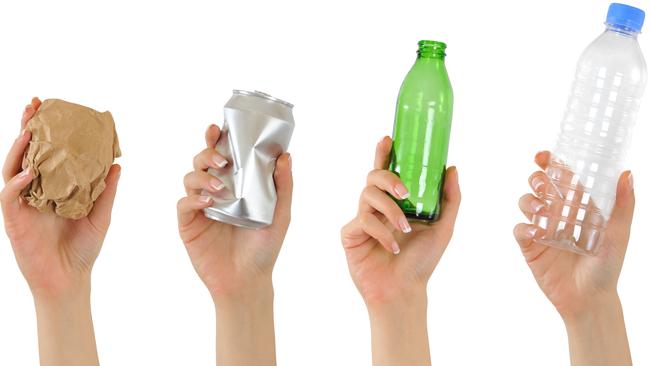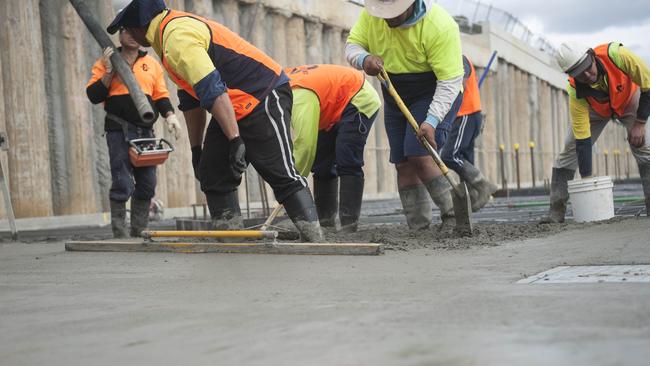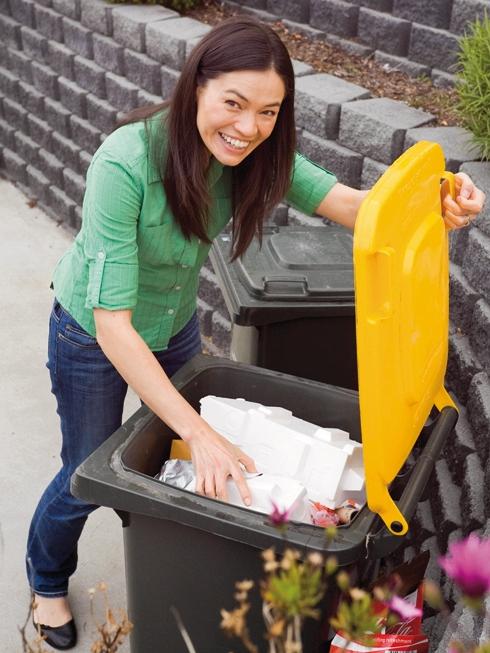Matt Johnston: Victoria can lead the way on recycling
AUSTRALIANS are in danger of losing the plot on recycling and that could be a lost opportunity, writes Matt Johnston.
Opinion
Don't miss out on the headlines from Opinion. Followed categories will be added to My News.
I RECENTLY helped clean a house after a party where many beverages in recyclable material had been consumed. The process was slow and painful.
More than once I questioned how a bottle had found its way behind a piece of furniture or a can into a nearby bush.
At one stage, a friend said it didn’t matter if bottles and cans were separated from the rest of the mess because since China stopped taking our rubbish, it was all going to landfill anyway.
It wasn’t the first time I had heard that sentiment since it was revealed that comrades in Asia were cutting the amount of low-quality recyclable material they would take from Australia.
I wrote about the topic at that time and considered how long it would take governments to step in to absorb some of the costs of this issue before it was passed on to households through increased council charges.
The Andrews Government did step in short-term, providing $13 million for councils and industry to “support the ongoing kerbside collection of household recyclable materials”.
That was never designed to be a solution for the problem, which has started to bite in other states since Victoria’s issues emerged.
RECYCLING THREAT MAY LEAVE HOMES WITH BINS OVERFLOWING
DON’T BURY YOUR THOUGHTS ON SUSTAINABILITY

It’s now being described as a national “crisis” by some groups, although Premier Daniel Andrews was having none of that today.
“This is not a challenge of our making but we still have to step up and respond to it,” he said.
“A national approach will be a good thing given that this will be a challenge states and territories right across the country are facing.”
Come in federal Environment Minister Josh Frydenberg.
A meeting is scheduled to be held today between state and territory ministers and Frydenberg.
It appears that the waste-management groups and environment groups now have the attention of all levels of government.
One of the ways they say local, state and federal governments can help divert recyclable material from landfill to industry is through their own “procurement” rules.
That means that when they buy things, they can mandate that recyclable material be used.
One example provided by the Waste Management Association of Australia is infrastructure.

Councils and government build a lot of things. By using crushed glass as a basis for concrete, it could re-use an enormous amount of material destined for the tip.
The Commonwealth is likely to push for converting waste to energy. That sounds like an excellent idea, but is it anywhere near close to reality — and if so how long will it take to develop? And how much will it cost?
One of the myths about the China factor is that the fast-developing nation has banned all material for recycling.
That is not true, although there are now much higher standards for waste transported to a country that is seeing an enormous increase in consumable material.
No doubt some local recycling infrastructure can be improved to provide a higher quality of material, but there is now a growing call for money to be put into conversion systems so that things can be consumed locally from water produced locally.
Again, this takes money.
Unsurprisingly, one area of the environment the majority of people, from whatever political persuasion they come from, can agree on is the need to recycle.
We have been conditioned to believe that for many years.
A controversial theory that won Richard Thaler the Nobel Prize for Economics is referred to as “nudge” theory.
This refers to the idea that humans aren’t always rational and are risk averse, but can be “nudged” into certain behaviour.

One of the best examples highlighted is superannuation contributions, but it could be applied to something like recycling.
When households are given a yellow-lid bin for recycling, they are encouraged to separate their bottles, cans and newspapers from other waste.
A Norwegian study recently published showed that households that received a simple letter with information about recycling went on to increase their rate of recycling.
Unless someone acts soon, it might be that a reverse nudge starts to kick in, undoing the enormous amount of work governments have done to boost waste separation and protect the environment. People need to see that their efforts in this space mean something. Work needs to happen relatively quickly, and it needs to happen outside the household.
Until people can establish that their cans are being reused, or their glass is going into road-building, they’re not going to want to do more at home.
Andrews was quick to point out that this was “not a challenge of our making” but also acknowledged Victoria has a chance to lead by example.
People understand this issue and want to see it fixed.
Something needs to come out of tomorrow’s meeting that shows people the long-term value of separating their beer receptacles from other rubbish.
Kicking the can down the road won’t cut it.
Matt Johnston is state politics editor



